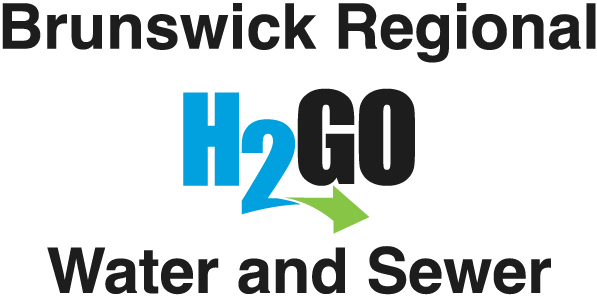Water Supply Planning
As H2GO’s Board of Commissioners continues to investigate alternative water supplies for our service area, we thought it important to provide links to a few background articles and regional planning documents that have been considered by the Board over the past few years.
-
Hampton, Jeff. "NC County's New Plant Slakes Area's Thirst for Water." The Virginian-Pilot, February 6, 2009.
Reverse-osmosis technology has put the northeastern region on track to be well-supplied, while other parts of the state struggle with drought. -
Brunswick County's Interbasin Transfer Certificate Request
Includes additional links to .pdf documents detailing Brunswick County's plans to transfer additional water resources out of the Cape Fear River basin. -
Ross, Richard and Anthony Zamarro. "From Discharge to Drinking Water." Water & Wastes Digest, May 4, 2010.
The village of Bald Head Island is a picturesque island community located off the mouth of the Cape Fear River in coastal North Carolina... For potable water supply, the village treats groundwater from a semi-confined aquifer via 16 production wells located at depths ranging from 55 ft to 65 ft below the surface. The water from the wells is piped to the water treatment facility, where it is treated to remove dissolved contaminants using multiple reverse osmosis (RO) treatment units. -
Maurer, Kevin. "Worrying About Water." StarNews, December 23, 2011.
Officials estimate the Cape Fear region's demands for water may exceed limits by 2035. -
Hibbs, Mark. "Drinking Water: An Imperiled Resource." Coastal Review, January 27, 2016.
Drinking water sources have become contaminated by coal-ash ponds and illegally dumped chemicals, failing septic systems and, in many coastal areas, salinity drawn in when too much groundwater is pumped out. -
Wagner, Adam. "Brunswick Declares State of Emergency Over Broken Water Main." StarNews, October 19, 2016.
With water supplies limited, businesses and residents adapt. -
Walsh, Bill. "H2GO’s Brunswick Reverse Osmosis Plant Makes Progress." StarNews, January 12, 2017.
The Star-News reported on the support we received at our NCDEQ Permit hearing. -
Fister Gale, Sarah. "Tapping Alternative Water Supplies." WaterWorld, April 2017.
Water security is a global issue and even in the United States, with our rich and diverse water resources, once relied-upon water systems are now at risk. -
Riley, Terry. "The (Not-So) Simple Business Of Water." The Wilmington Biz, April 7, 2017.
The Wilmington Biz writer Terry Riley explores the 'business' of water and the implications it has on customers. -
Ross, Kirk. "Cape Fear Pollution Fix: Call It a ‘Swamp?’" Coastal Review, April 10, 2017.
A change in environmental rules pending in Raleigh could officially classify roughly 12 miles of the Cape Fear River as “swamp water,” thereby lowering the water quality standards and reducing requirements on local businesses and governments with discharge permits. -
Lewis Hilburn, Rachel. "CoastLine: What's in the Water?" WHQR, April 20, 2017.
On this edition of CoastLine, we find out where local water comes from and how the people in charge of your drinking water treat it before it comes out of your tap. -
"Survey: Half of Americans Don't Believe Water Scarcity is an Issue; Water Utilities Disagree." Water World, April 21, 2017.
A newly released Grundfos consumer research survey reveals a divide between concerns held by water utilities over key water-related issues, and a lack of urgency among consumers. -
Mannion, Cory. "One Advocacy Group Says the Cape Fear River is Suffering. But Can We Trace the Problem?" Port City Daily, May 5, 2017.
Port City Daily investigated what exactly led to the Cape Fear River being listed as one of the most endangered rivers in America. - Hagerty, Vaughn. "Toxin Taints CFPUA Drinking Water" StarNews, June 7, 2017. A chemical replacement for a key ingredient in Teflon linked to cancer and a host of other ailments has been found in the drinking water system of the Cape Fear Public Utility Authority (CFPUA), which cannot filter it.







